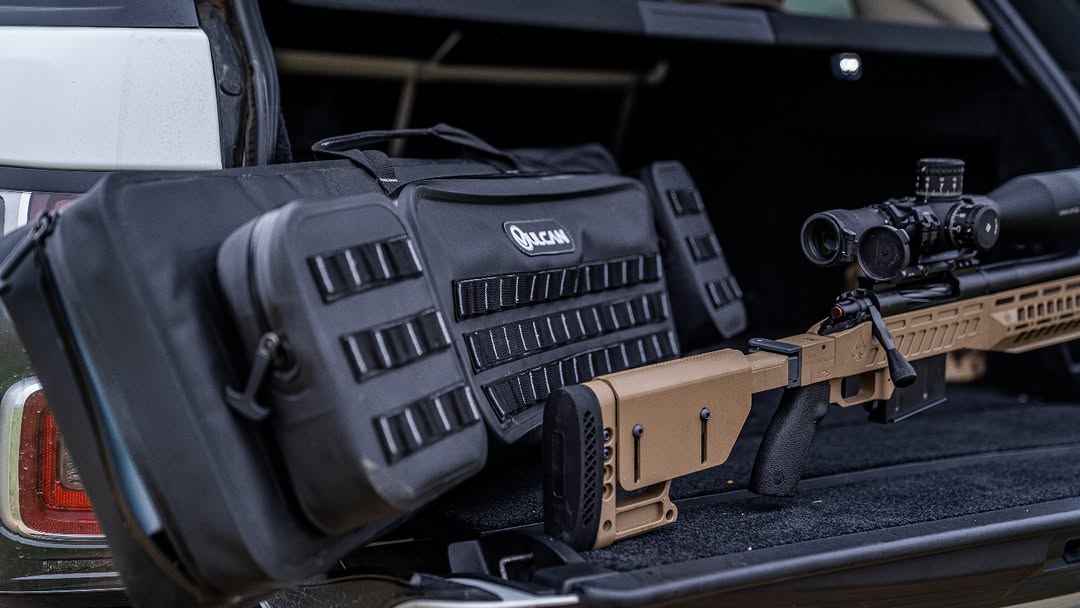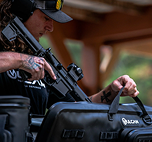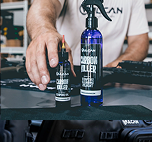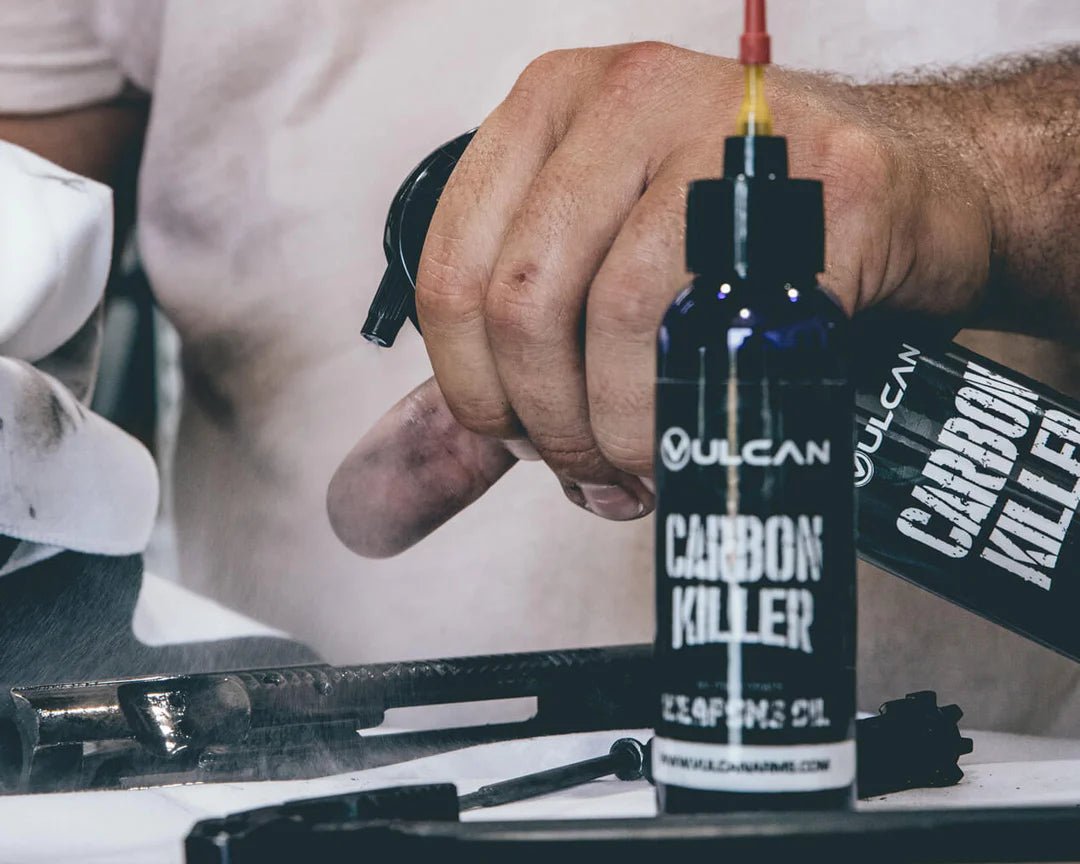Whether you use your firearm as a service weapon or just take it to the range for sporadic recreation, establishing a gun cleaning routine is essential in maintaining its functionality and prolonging the lifespan of your gun. Learn more about why cleaning your gun matters, what steps to take to ensure it’s done properly, and what tools you’ll need once you’re ready to begin.
Why Gun Cleaning Matters
First and foremost, keeping your gun clean keeps your gun safe. We often buy firearms to protect ourselves and our families, but without routine gun cleaning and maintenance, you run the risk of a jam, misfire—or worse, a bullet getting stuck in the barrel. Any one of these events can create dangerous scenarios that could end in serious injury. See why else gun cleaning matters.
You Become Familiar
Because proper gun cleaning requires you to disassemble and reassemble your firearm, you start to better understand how your gun works. By taking it apart to clean those hard-to-reach places, you have the opportunity to see which components go where and what each of them do. This should be a standard part of your gun maintenance routine as it’ll also help you troubleshoot should anything go wrong with your gun.
Increases Longevity
For a lot of people, their guns are a prized possession. And similar to taking your car or motorcycle into the shop for a tune up, we have to take care of our guns in order for them to last as long as they can. The better you take care of your gun, the longer it’ll last—it’s as simple as that. And the number one way to take care of it: routine maintenance and cleaning.
Prevents Malfunctions
When a bullet passes through your gun, it creates a fouling residue in the barrel. No big deal, right? Well, maybe not after one shot, but after a hundred, the residue can build up enough to affect your gun’s precision. Not only that, but your gun may not fire at all. Routine maintenance and gun cleaning can prevent malfunctions like rusting, failure to fire and residual fouling buildup.
Our Gun Maintenance Tips
Inspect it Weekly
This is your opportunity to take your gun apart, clean each section, and check each individual component. By doing this weekly or so, you’re able to discern any early signs of wear and tear (or worse, damage!) that may become a bigger problem later. Gun maintenance is all about routine. Inspecting your gun on a weekly basis is an easy thing you can do to maintain the functionality of your firearm.
Routinely Clean Your Firearm
Here’s the crazy thing: Even if you haven’t used your gun, you should clean it. Why? Because even if your gun is sitting inside a safe, untouched, residue and corrosion can still build up in your firearm. And if you always carry your gun with you, residue and corrosion build up even quicker.
A good rule of thumb is to clean your gun after 200 or so rounds. If you aren’t shooting your gun that much, be sure to clean it at least once a month to keep it functioning at its best. Cleaning guns is simple, easy and can be pretty meditative. Turn it into an activity you look forward to!
Shoot with No Ammo
This is called “dry firing.” So long that you don’t own a rimfire firearm (or older guns where the firing pin goes too far forward without ammo), then this is a safe practice to include in your maintenance routine. By shooting without ammo, you’re able to practice your firing skills, practice safe gun handling, and—most importantly—learn how your firearm operates.
Here’s What You Need
So, now that you have a routine, there’s a few tools you might need.
Gun Cleaner
Cleaning guns starts with, you guessed it, gun cleaner. And as any gun owner should know, it’s a two-step process. Step one involves a cleaning solvent. These are chemically formulated to break down or dissolve any residue and carbon build up. By using a solvent, you’re basically making the cleaning process easier as the dirt, grime and build up is already being broken down before you even begin wiping or scrubbing.
Gun Oil
Step two in the gun cleaning process involves using gun oil. Unlike WE-40, motor oil, or kitchen oils, gun cleaner oil is specifically formulated for lubricating firearms. They’re often packed with viscosity modifiers, antioxidants and reducing agents. So, if you’ve ever wondered can gun cleaner cause rust, we’re here to tell you no—so long that you’re using a good gun oil afterward.
Cotton Rounds
When you’re properly cleaning your gun, it’s nice to have cotton rounds—especially when applying the cleaning solvent. It’s the best way to thoroughly get the gun cleaner into every nook and cranny before going back in with the next thing on our list: A cleaning rod.
A Cleaning Rod
This is an essential tool for cleaning your gun. You’ll find that most rods come in a few different segments that you can screw together so it’s the appropriate length for your specific firearm. Once assembled, this tool will help you clean the inside hard-to-reach areas (like the barrel) that still have residue post solvent.
Caliber-Specific Bore Brush
And finally, a caliber-specific bore brush is what you’ll need to clean the fouling residue in your barrel once you attach it to your rod. Sure, there are generic bore brushes, but if you want a gun cleaning kit that’s specific to your firearm (and really gets the job done!), it’s worth finding a bore brush that matches your gun’s caliber.
Vulcan Has You Covered
Unlike CLP gun cleaner that often works against itself, we’ve come up with a gun cleaning kit that offers both a solvent and gun oil that’s guaranteed to kill any carbon build up. In fact, we’ve used cutting-edge technology to design the perfect cleaning solution in the industry. It works on all guns, is made with non-toxic ingredients, offers military-grade performance, and the best part? It’s 100% odorless. Make gun cleaning a part of your regular routine with the best products out there.









Share:
The Essentials for Your Gun Range
Best Holiday Gifts for Gun Lovers